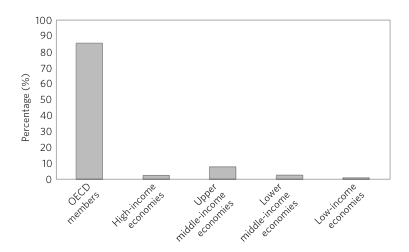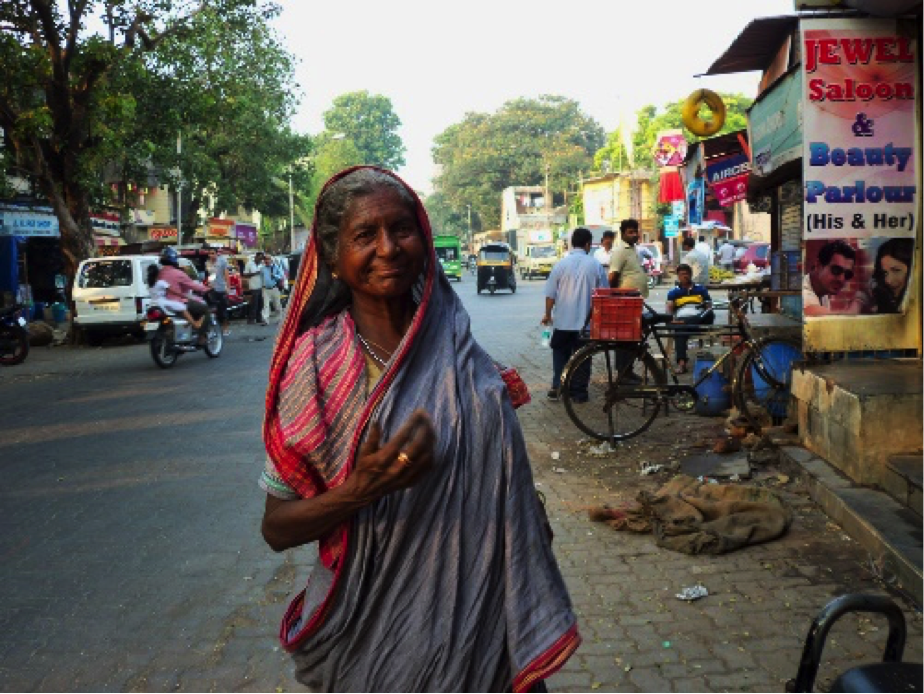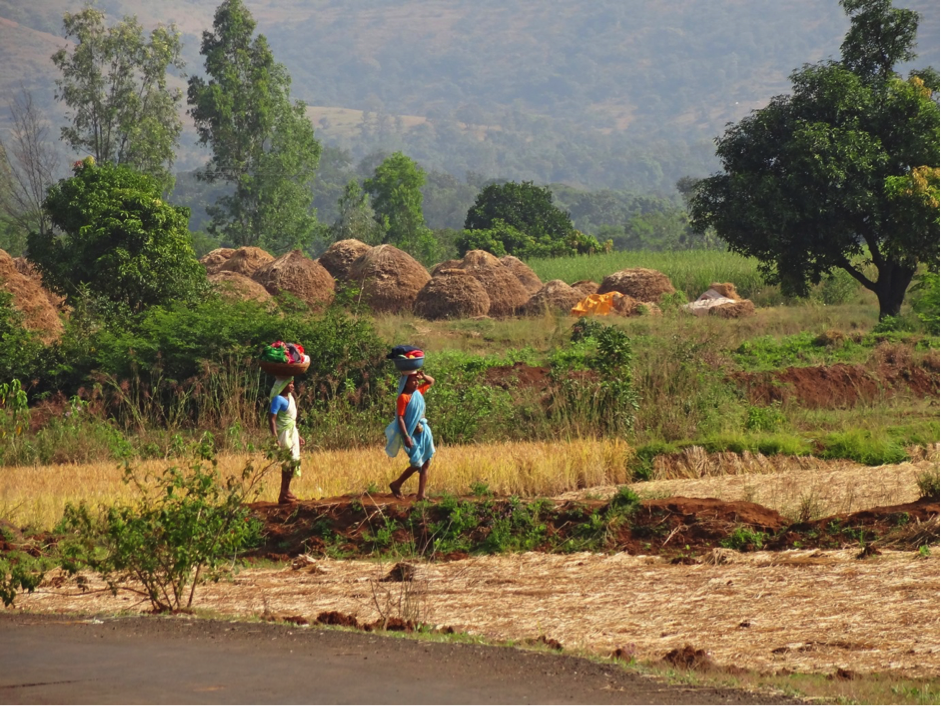North-South divide in science may hinder action on climate change
North-South divide in science may hinder action on climate change
Development and implementation of global climate change agreements and nationally-appropriate actions are threatened by global inequality in science relevant to climate change policy and practice. Richard Smithers of Ricardo Energy & Environment and Malgorzata Blicharska of the Department of Earth Sciences, Uppsala University and the Swedish Biodiversity Centre, Swedish University of Agricultural Sciences report. Scroll to the bottom to see more about what CDKN is doing to bridge the divide.
Northern countries (i.e. OECD or high-income economies) have set the global climate change policy agenda since the beginning. Even now, most of the science underpinning agreements and policy instruments developed under the UNFCCC (UN Framework Convention on Climate Change) continues to be generated in the North.
In January 2017, we published a study on the North-South divide in research relevant to climate change policy and practice in the international journal Nature Climate Change. Our co-authors were 10 of the World’s most eminent Southern scientists and colleagues from Sweden. We assessed underlying causes of the divide and its potential consequences, and recommended practical steps that need to be taken to span it.
The extent of the North-South divide can be illustrated by a simple analysis of scientific publications, which reveals that articles that address climate change are dominated by authors from OECD countries, while a minute fraction come from Southern countries (see Figure ). The reasons for this divide lie in the greater capacity of Northern countries to conduct research, as they are more stable, wealthier, and have better access to education and resources for research. In addition, Southern countries more frequently face practical challenges when conducting research, writing scientific articles or submitting applications.
 Figure: Affiliations of authors of scientific articles about climate change
Figure: Affiliations of authors of scientific articles about climate change
in relation to countries’ economic status. Percentage of author-affiliations of
scientific articles published in 2000–2014 (93,584 publications) concerning
climate change (i.e., with “climate change” or “climatic change” in the title, abstract or keywords) from each country income category.
What are some of the potential consequences?
Northern domination of science relevant to climate change policy and practice and lack of research led by Southern researchers in Southern countries challenges the credibility and legitimacy of knowledge and, in turn, influences the acceptance of relevant policies. The imbalance favours richer countries, which emit more carbon and are less vulnerable to climate change. Furthermore, it puts least developed countries (LDC) and small island developing states (SIDS) at a severe disadvantage, potentially fuelling many of the long-standing divisive issues in global negotiations between Northern and Southern policies.
November 2016 saw world leaders meeting in Marrakech for the Conference of the Parties to the UNFCCC. The meeting sought to further implementation of the 2015 Paris Agreement, which heralded a new bottom-up approach to the establishment of emission-reduction targets with countries providing their own Nationally Determined Contributions (NDCs). However, the North-South divide in research means that Southern countries may have limited ability to pose evidence-based questions as to whether Northern NDCs are equitable. It may also be difficult for Southern countries to accept positions put forward by Northern countries and justified by Northern research because they may perceive them as biased towards Northern countries’ vested interests.
The North-South divide means that specific local factors may not be sufficiently considered in generating and implementing scientific knowledge about Southern countries. As a consequence, Southern countries’ presentation of robust Nationally Appropriate Mitigation Actions (NAMAs), Low Emission Development Strategies (LEDSs), NDCs and National Adaptation Plans (NAPs) may be hindered. We are concerned that this may threaten the global legitimacy of these documents and potentially undermine implementation of the Paris Agreement in relation to both mitigation and adaptation, as well as countries’ abilities to secure international funding (e.g. through the Green Climate Fund, GCF).
It may be essential for research to be led by researchers from a country relevant to an investigation if scientific outputs are to be accepted as having been generated inclusively and as reflective of socio-political and cultural circumstances. This may thereby enable decision-makers to translate results into locally-sensitive policy and practice. In particular, limited research about Southern countries, and especially led by researchers from local institutions, may limit the efficacy and legitimacy of climate change vulnerability assessments, identification and prioritisation of adaptation options, and disaster risk reduction and management.
 Aren’t there existing initiatives to bridge the divide?
Aren’t there existing initiatives to bridge the divide?
Our study highlights some initiatives that are already being implemented to bridge the North-South divide in research. Intergovernmental organisations, international donor organisations and Northern governmental institutions are trying to promote postgraduate education in Southern countries, e.g. British Council’s Newton Bhabha Fund, United Nations University’s World Institute for Development Economics Research (WIDER), IPCC’s Scholarship Programme, UN Environment’s Global Programme of Research on Climate Change Vulnerability, Impacts and Adaptation (PROVIA) Fellowships and the Wellcome Trust. They have also sought to tackle the divide through establishing North-South research programmes or networks, e.g. Wealth Accounting and the Valuation of Ecosystem Services (WAVES), Ecosystem Services for Poverty Alleviation (ESPA), Implementing Education Quality in Low-Income Countries (EDQUAL) and NeTropica.
Some Southern governments are now investing significantly in research, particularly upper-middle income countries (e.g. China, Brazil or Malaysia). There are a number of existing South-South initiatives by Southern research institutions, e.g. the Consortium of Global South Youth Scholars (COGSYS), and the South Asian University. The Research4Life initiative has also already made substantial headway in providing Southern countries with access to high-quality scientific literature. Yet, despite the range of efforts made, improvement in the North-South divide in research continues to progress in slow motion.
What needs to be done to create momentum?
Building upon existing initiatives, our study recommends a set of practical steps in both Northern and Southern countries for spanning the divide. We target each of these steps to particular types of organisations at global, regional or national scales (see Box 2 in our report). The recommended steps include provision of funding, mentorship support, improved education, establishment of North-South research programmes, strengthening South-South collaboration, and a range of other practical measures.
We believe comprehensive implementation of our recommended steps is vital if there is to be a paradigm shift from a northern-dominated research culture to one that supports the equitable involvement of Southern researchers. It is also important to bear in mind that Southern countries may have wider needs for socioeconomic support and development that more fundamentally limit their scientific endeavours. As such, only through developing the national capacities of Southern countries will they eventually be put on an equal footing with their Northern partners.
Read the full study here: Steps to overcome the North–South divide in research relevant to climate change policy and practice
What CDKN is doing to bridge the North-South divide on climate science
CDKN initiatives include:

